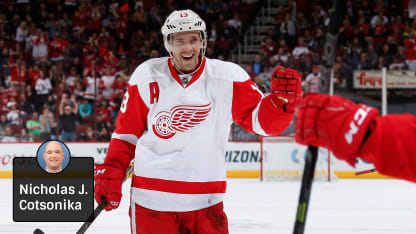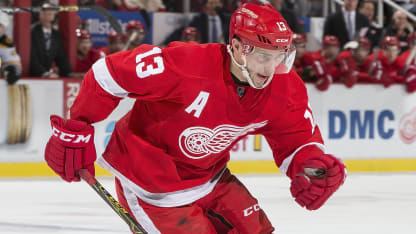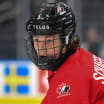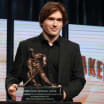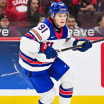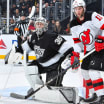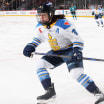Datsyuk said he intended to honor the entire contract at the time. But he had a daughter from his first marriage living in Russia whom he rarely got to see, and a week into his new contract, he told Holland that 2014-15 would be his last season in the NHL.
A month or two later, Datsyuk told Zetterberg. That December or January, Holland started to talk to Greenstin in an effort to convince Datsyuk to stay, explaining the effect his departure would have on the team, and then Datsyuk replaced Greenstin with Milstein. Datsyuk and Milstein started trying to find ways to get out of the contract without hurting the Red Wings.
After the 2014-15 season, Holland convinced Datsyuk to honor his contract for 2015-16, telling him if he came back but wanted to leave for 2016-17, the Red Wings would deal with the fallout. He hoped Datsyuk would come back, have fun and decide to honor his contract for 2016-17 too. But Datsyuk said the longer it went, the harder it was for him to be away from home. His daughter turns 14 in August.
"Pav was concerned about the Detroit Red Wings," Holland said. "Pav didn't do this knowingly. Certainly I'm disappointed he's not going to honor the '16-17 season, but I've spent 18 months talking to him and Dan Milstein, and I understand the reasons why. His heart isn't here anymore."
A piece of it always will remain, though. Remember: Datsyuk came to Detroit as the 171st selection in the 1998 NHL Draft. He didn't know the language. He didn't know the culture. He didn't know the North American game.
"They give me a chance to change me," Datsyuk said.
Datsyuk said Detroit became his "second home," and he became one of the best two-way players in hockey, not to mention one of the most entertaining. He had 314 goals and 918 points in 953 NHL regular-season games, plus 42 goals and 113 points in 157 playoff games, all with the Red Wings. He had a rare combination of hustle and creativity, picking pockets on the backcheck, making now-you-see-it-now-you-don't moves in the offensive end. Washington Capitals coach Barry Trotz once said he had "joy" in his game, and he was a joy to watch.
Now the joy is gone. For his final act, the Magic Man has vanished, just like that.
